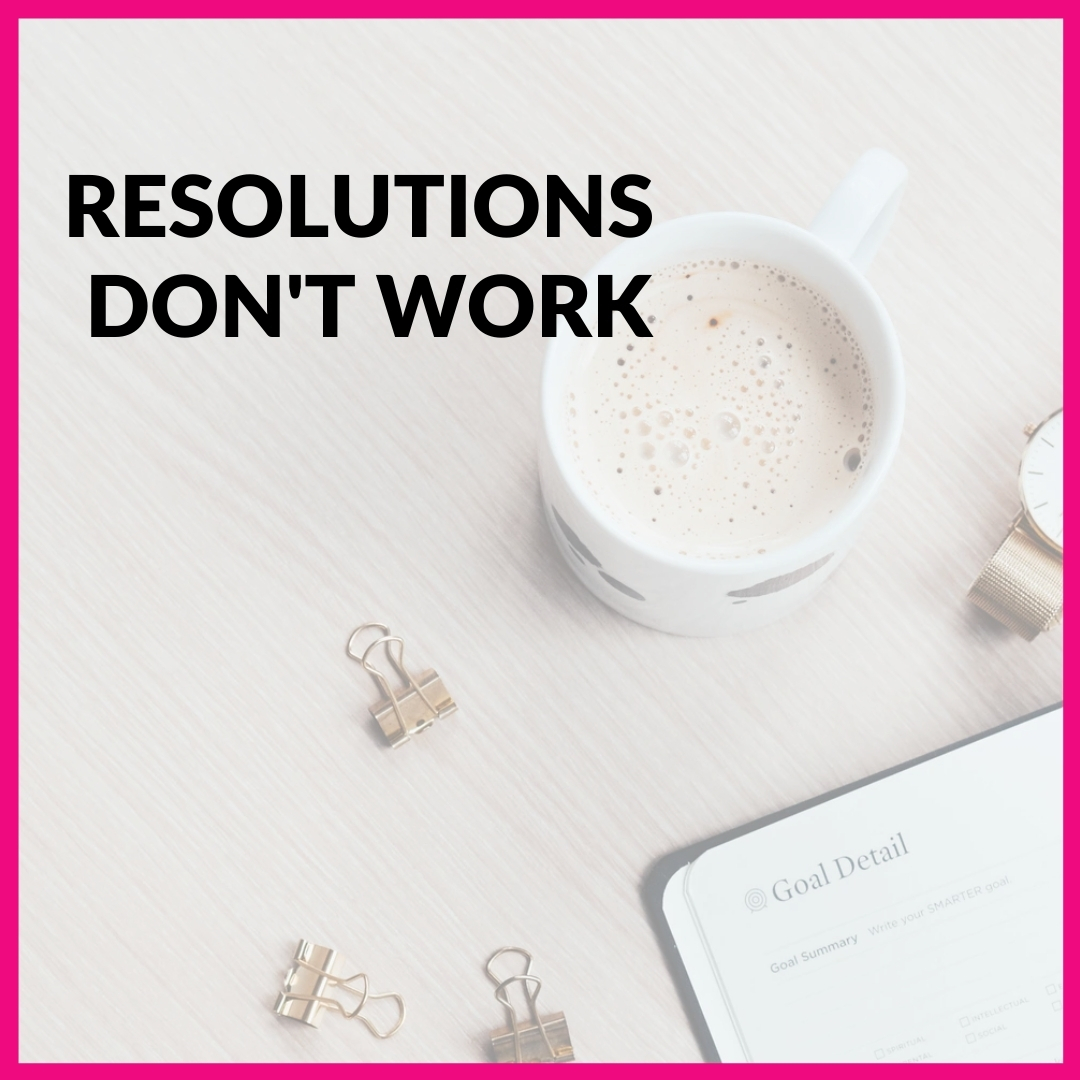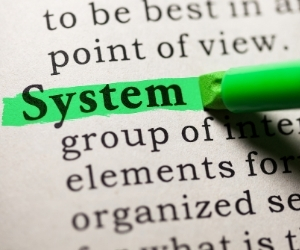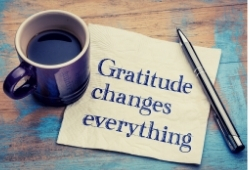
There is no denying that New Year’s resolutions are a popular topic. It makes sense. When the calendar resets, we are given an opportunity to reset. And it’s human nature to reset our habits and goals when the calendar resets. But, it is also true that most people abandon their resolutions pretty quickly. This is because resolutions don’t have staying power when compared to building zen habits.
How come? There are many reasons why resolutions fail. But, simply put, they tend to be too random, and challenging. As a result of the randomness and energy required, they fall apart.
What does work then? Zen habits work. And one tremendous habit that will ensure your most important goal is achieved, is setting rituals that are in simple, specific, secured and scheduled.
Before the new year, we went live for a week to teach people how to get clarity over their goals. Here is the FREE Guide we gave away at the end of the challenge: DOWNLOAD FREE How To Get Clarity Workbook
What Are Zen Habits?
Simply put, a habit is a regular practice that is difficult to give up. And zen is described as a meditative state based on our intuition that leads to a feeling of peace and calm.
Everyone struggles and everyone wins. Everyone has highs and lows. This is the case regardless of the magnitude of your dreams. And if this is true, then we might as well aim for big goals and feel as good as possible along the journey.
Habits can be both helpful, or harmful. Rather than worry about cessation, or stopping the harmful habits, we are going to focus on the positive. The positive energy that comes with adding helpful habits.
But, why do some people seem to add these helpful habits so much more effectively than others?
Why Zen Habits Work Best?
As James Clear wrote in the book Atomic Habits, “If you’re having trouble changing your habits, the problem isn’t you. The problem is your system. You do not rise to the level of your goals. You fall to the level of your systems.”

When you build systems and zen habits as opposed to worrying about results, then any result becomes completely outside of your control. This may sound like a negative thing, but it isn’t. In fact, it should be refreshing and energizing.
We can not control the actual results in life. All we can do is choose the destination, the big dream, the north star, aim toward it, and take the next step. The next step becomes more and more effective and efficient if it is built on a foundation of systems and habits.
These zen habits can add up over time and become the foundation for achieving the goals that you set your sights on. For most people the process of improving habits becomes chaotic and disorganized. We attempt to rely on memory, or at worse luck to have a habit become part of our lives.
One of the best ways to achieve calm and peaceful habit development is with habit systems. Habit systems become like compound interest for life because over time they increase in value and impact. These systems ensure your success by making the process simple, straightforward, and all but guaranteed.
Like any investment that grows, small, regular inputs add up to large outcomes over time. If you improve habits in small chunks, piece by piece, before you know it you have come a long way. All of a sudden, you feel confident taking on any goal because it’s built on a solid foundation.
Habit Formation Month By Month
At Just Keep Learning, we will update this post each month with a new zen habit. Adding a new habit each and every month is a great method to change your life drastically in one year. Because trying to add too many habits all at once is one of the most common ways to fail in all of them. Stacking 12 zen habits month by month this year will ensure you feel calm along the way.
Our zen habits will be posted and discussed in broad terms. For example, exercise, or gratitude. Then, within each habit topic, you could easily choose a more specific habit that works for you. Here is the list of overarching habits we will work on throughout the year.
- January: Gratitude
- February: Exercise
- March: Meditation
- April: Creativity
- May: Reading
- June: Organizing
- July: Nutrition
- August: Relationships
- September: Money
- October: Mindfulness
- November: Passions
- December Habit: Goal Setting
Time To Get To Work
There you have it. Twelve zen habits that we will add this year to help you regain the power that you have as a person who loves to achieve your goals. As each month arrives we will add a new overarching habit. To get the most out of this plan, choose a specific and systematic ritual to add to your life routine that ties into the topic of the month.
Warning. It is very common for people to decide on a habit that is too difficult, time-consuming, or draining. You might start out successful, with energy, having great days, but then you drop off entirely. It seems counterintuitive, but the smallest, most digestible habit is what we want to track.
Make It A System That Can Not Fail
Do not skip this part of habit formation! The sneaky little secret to ensure your habit sticks is to be super specific on what the ritual is. You should secure your new habit ritual to other events and habits that you already do automatically. Adding a positive habit should be a helpful thing. However, even a habit to improve gratitude can become more stressful, if not executed properly.
How To Craft Your Habit
If you choose to focus on a habit that is not simple, specific, secured and scheduled, you are likely doing more harm than good. Because throughout your day, a part of your mind will feel guilt, shame, and confusion about what it was you were supposed to be achieving with your habit.
Say you choose a resolution focused on gratitude this month. In general, you might start out with “I will reflect on the things I am grateful for more often”. That sounds like an amazing accomplishment, but let’s make sure it will happen.
The first thing to ensure is you record how you are going to do this. For example, I will write in my journal three things I feel grateful for today, or a daily gratitude prompt, or stream of consciousness writing on what you are grateful for. Either way, what are you actually doing to reflect on gratitude explicitly?
Then you need to make sure that you specify when you will do this in a very specific manner. It is not enough to use broad timelines, such as lunch, or evening, morning, or weekday. You need to be specific and there are a couple of ways to do so.
Getting More Specific
One of the ways to be specific about when you get triggered to complete the habit is to use an artificial prompt, such as an alarm. Have the alarm go off when you are to complete the habit and voila, it happens every time. But, one of the most effective ways can be to secure it to a ritual that you already have.
There are many things people might do every day. Things like brushing your teeth, unlocking your phone, turning off the lights, pouring a coffee, getting out of your car, finishing the work day, starting the workday etc. The list goes on forever, and the art of what James Clear defines as “habit stacking” can become quite complex. But, the overall concept is clear.
Set rituals that are not challenging at all, define what it is, when it will occur, how you’ll be triggered to get started and make sure you track it.
Some days you’ll do more, some days less, and that’s great. But, the tracking should be of the “smaller” variety. So, make sure your routine is something that is all but guaranteed to be accomplished.
Write down what the routine, or ritual will be, and make sure you post it somewhere that is visible daily. You may choose to post this on your fridge, office wall, as the background on your phone, but most importantly record it and put it somewhere visible.
One last thing that will all but ensure your success in implementing this is habit tracking. Here is a downloadable habit tracker you can use.
* Habit tracker and checklist for making sure that your habit is guaranteed to be successful *
January Zen Habits: Gratitude
Now that we know how to set solid systems that ensure our habits are successful, let’s add a specific topic that can really add to the vitality we feel in life.

When it comes to building a life of vitality, there can be a chicken and egg problem. Adding a habit makes you feel better. If you feel better, it’s easier to add habits. So, let’s start with the quickest way to increase vitality. Gratitude.
According to the world-renowned thought leader Zig Ziglar, “Gratitude is the healthiest of all human emotions. The more you express gratitude for what you have, the more likely you will have even more to express gratitude for.”
Without realizing it, people often seek attention for their problems, because any attention is better than no attention and they continue to focus on what is not working.
This victim mentality can be removed by focusing on the complete opposite. Instead of what you don’t have, focus on what you do have. It’s as simple as that.
People tend to focus on the macro when they think of gratitude. They think things like being grateful for family, for health, the weather, for the environment, for our senses. But we can also look at the micro of gratitude. Pick a more specific thing, like your job, your significant other, your house, your car, or your body.
Gratitude Leads To The GoodLife
Of course there could be things that you don’t appreciate about these things. But, if you allow those things to creep into your thoughts it becomes stressful and tiring. Instead, put all of your energy into what you do like about such things and watch how much energy you gain.
Now that you understand how to build a new habit as explained above, go ahead and build one specific to gratitude. Create a ritual that helps you find the good, instead of the fault in life.
Remember to write down a ritual that is simple, specific, secured and scheduled. Once you do, it’s only a matter of time until you have appreciation and accountability over your vitality in life.
You should definitely craft zen habits rituals that are truly your own, but here are a couple of examples. Be sure to join us in the JKL Community GROUP to share what you are doing to build your gratitude habit.
Gratitude Example 1: Two Minute Gratitude Timeout
Every day when I first sit down at my desk, for two minutes, I will close my eyes and picture everything that I am grateful for.
Gratitude Example 2:
Every time I check my email, before I read, or reply to anything I will send an outgoing thank you to someone.
Gratitude Example 3:
Every morning after I complete my yoga routine I will write one page in my journal about the things I am grateful for that are different than what I wrote yesterday.
Gratitude Example 4:
For one month, every day before I leave my office, I will send a coffee gift card to someone that I am grateful to be connected with.
Now let’s get to it. We would love to see what you do for Gratitude! We will update and support everyone in our FREE FACEBOOK Group, The JKL Goal Setting Community. COME JOIN THE COMMUNITY
Join Our TEXT COMMUNITY for tips on learning, business, and motivation.
Just Text: 1-313-710-5499